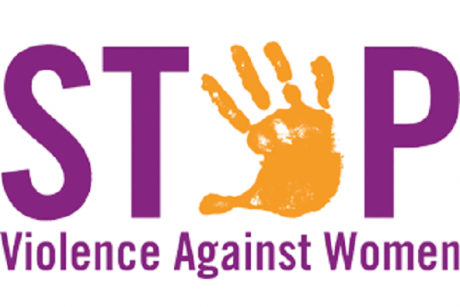Columns
You are here
Labour against violence against women

December 21, 2014
At a recent meeting of the Assembly of First Nations, Rinelle Harper called on delegates to press for a national inquiry into the missing and murdered Indigenous women. She is the young woman who was assaulted by two men and left for dead on the banks of the Assiniboine River in Winnepeg.
She said “I am here to talk about an end to violence against young (Indigenous) women.” as she called for action. The federal government has consistently refused to initiate an inquiry, ignoring the demands of Indigenous women and their supporters across the country.
There has been a global dialogue on violence against women in recent times. The rates of domestic violence and sexual assault are staggering. Women have been demanding action on university campuses, in workplaces and in our communities. Governments have been slow to act and usually do so only after demands have been made by women’s organizations, trade unions and others concerned about the issue. The Harper government has been defunding women’s groups that have been asking for stronger policies and advocating on behalf of women’s needs.
Violence at work
At a rally for Reproductive Justice in Toronto a while back Andria Babington, a hotel worker and member of Unite Here local 75, spoke about the harassment and sexual violence that she and other women like herself had been routinely subject to on the job. As housekeepers they have to clean the rooms of customers, and propositions and outright assaults are regular occurrences. There was very little that was being done before there was a union.
She said that the situation they were facing was one of the reasons they organized. Things are not perfect in a unionized environment but they have substantially improved. Not only is there a grievance procedure in place where complaints can be taken up by the union, but harassment is also a health and safety issue. Women are no longer on their own to deal with abuse when it occurs.
Unions have been pushed by their women members to make violence against women a major issue for labour. Women’s committee’s have demanded that information on violence be integrated into union education. Harassment and bullying language has been negotiated into collective agreements. Many union members—men, women and transgender—have a greater understanding of the issues and refuse to tolerate abuse of this sort in their work places. The trade union movement has pressed for legislation against workplace violence—pushing provinces such as Ontario to pass bills requiring employers put policies in place.
Andria spoke very clearly about the difference working in a unionized environment meant in her day-to-day life. It allowed her to hold her head high and feel confident that she would have the backing of her fellow workers if anything untoward happened. The fact that the trade unions have spoken out loudly and clearly against violence of any sort provides for a safer working environment for all.
Domestic violence
The Canadian Labour Congress recently did a survey on domestic violence at work. It found that $77.9 million was lost due to direct or indirect impact of domestic violence in workplaces. Eight per cent of those experiencing this had lost their jobs. 53 per cent were Indigenous, people with disabilities or LGBTQ. Thirty-five per cent of respondents said that they felt they had at least one co-worker who experienced domestic violence and 11.54 per cent believed they had a co-worker who was a perpetrator of violence. Twenty-seven per cent said they received information from their union about the issue, which shows more work has to be done.
We have seen where some unions such as the Yukon Teachers federation have bargained leave to be used by members who experience domestic violence. The Canadian Union of Postal Workers have trained social stewards to develop skills in this area to support fellow workers. Union counselling course by labour councils and individual unions have also provided information for union members to assist others in their work places.
The question of domestic violence is not going away and trade unions alongside women’s organizations are making real impact, but much more has to be done. No one should have to put up with this type of violence and harassment. The fact that concrete actions are taking place in workplaces and the broader community by so many can only help to take on this fight.
This is part and parcel of the broader fight for women’s liberation. We have to continue the struggle for a new society controlled from the bottom where exploitation and oppression are a thing of the past. Capitalism must be replaced by a system that truly puts all people before profits.
Section:









